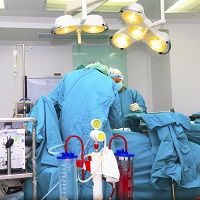Publication
Article
Internal Medicine World Report
Disconnect Between Bariatric Surgery Practice, Training
Author(s):
Though a large portion of surgical practice is dedicated to bariatric surgery, an article published in JAMA Surgery claimed training for the technique and subsequent patient care has not followed suit.

Though a large portion of surgical practice is dedicated to bariatric surgery, an article published in JAMA Surgery claimed training for the technique and subsequent patient care has not followed suit.
Assessing the Faculty Practice Solution Center (FPSC) database — a tool comprised of the revenue data of 90,000 physicians working at 95 US institutions — researchers from the University of California, Davis (UCD), and Mercy San Juan Medical Center determined the annual mean procedure frequency per surgeon (PFS) for every year from from 2006 to 2011. To gauge physicians’ effort and skill, they used associated work relative value units (wRVUs).
“For example, the wRVUs for the laparoscopic Roux-en-Y gastric bypass (RYGB) and Whipple procedures are 3.7 and 6.6 times greater than the repair of the inguinal hernia, respectively,” the investigators explained.
The authors then analyzed the 100 most common surgical procedures, which consisted of RYGB (PFS, 18.2-24.6) — frequently a top 10 procedure — and other commonly practiced procedures including laparoscopic cholecystectomy (PFS, 30.3-43.5), upper gastrointestinal tract endoscopy (PFS, 26.5-34.3), mastectomy (PFS, 16.5-35.0), inguinal hernia repair (PFS, 15.5-22.1), and abdominal wall hernia repair (PFS, 21.6-26.1). In doing so, they also reported RYGB yielded the highest wRVUs (wRVUs, 491.0-618.2) every year, with laparoscopic cholecystectomy (wRVUs, 335.8-498.7) often being second on the list.
In light of their findings, the researchers warned that the training provided to physicians performing bariatric surgery is insufficient; and with general surgery growing, academic exposure to this procedure will be even more essential.
“We believe that resident surgical training should continue to reevaluate its core curriculum to ensure that surgical graduates have received appropriate training,” the authors concluded. “Bariatric surgery would provide ample opportunity for surgeons to improve laparoscopic technical expertise and become familiar with this increasing population of patients.”





